A mother from Rotherham has revealed her struggle with a rare allergy to cold temperatures, which causes her skin to erupt in painful, itchy hives that she describes as making her want to “rip it off”.
Jill Pearson, 46, says she “hates” the winter months due to the debilitating condition.
Ms Pearson, a married mother-of-two who has dedicated 13 years to palliative care nursing, first observed her skin turning red after cold exposure at the age of 13.
She recalls arriving at school to classmates asking, “what’s wrong with your face?”
The transition from cold to hot environments now causes her skin to “burn”, with hives resembling “nettle stings” appearing even from simply touching a cold surface.
Despite years of discomfort, a formal diagnosis remained elusive until 2019.
It was during a family trip to Disneyland in America, after swimming in “really cold” water with dolphins, that Ms Pearson experienced a severe reaction akin to anaphylaxis – a rapid, life-threatening allergic response.
Following the incident, she was finally diagnosed with cold urticaria, an allergic reaction to cold, in August 2019.
The diagnosis has necessitated daily adjustments, including brushing her teeth with lukewarm water and maintaining constant heating in her home to manage her symptoms.
While Ms Pearson uses some medications to “dampen down” her reactions, she must now carry two EpiPens at all times as there is no cure for her condition and, while going abroad provides temporary respite, the winter season in the UK is something she has come to despise.
“I hate winter – I always wear a hat, a scarf, gloves, thermal vests and fleece-lined trousers,” she said.
“If I get something out the fridge that’s cold, my hand will swell up and itch.
“I just want to literally rip the skin off because it’s itching so much.
“Even if I was leaning on a table to eat my dinner and the surface is cold, my arms then have a patch of redness, which is itchy and swollen.”
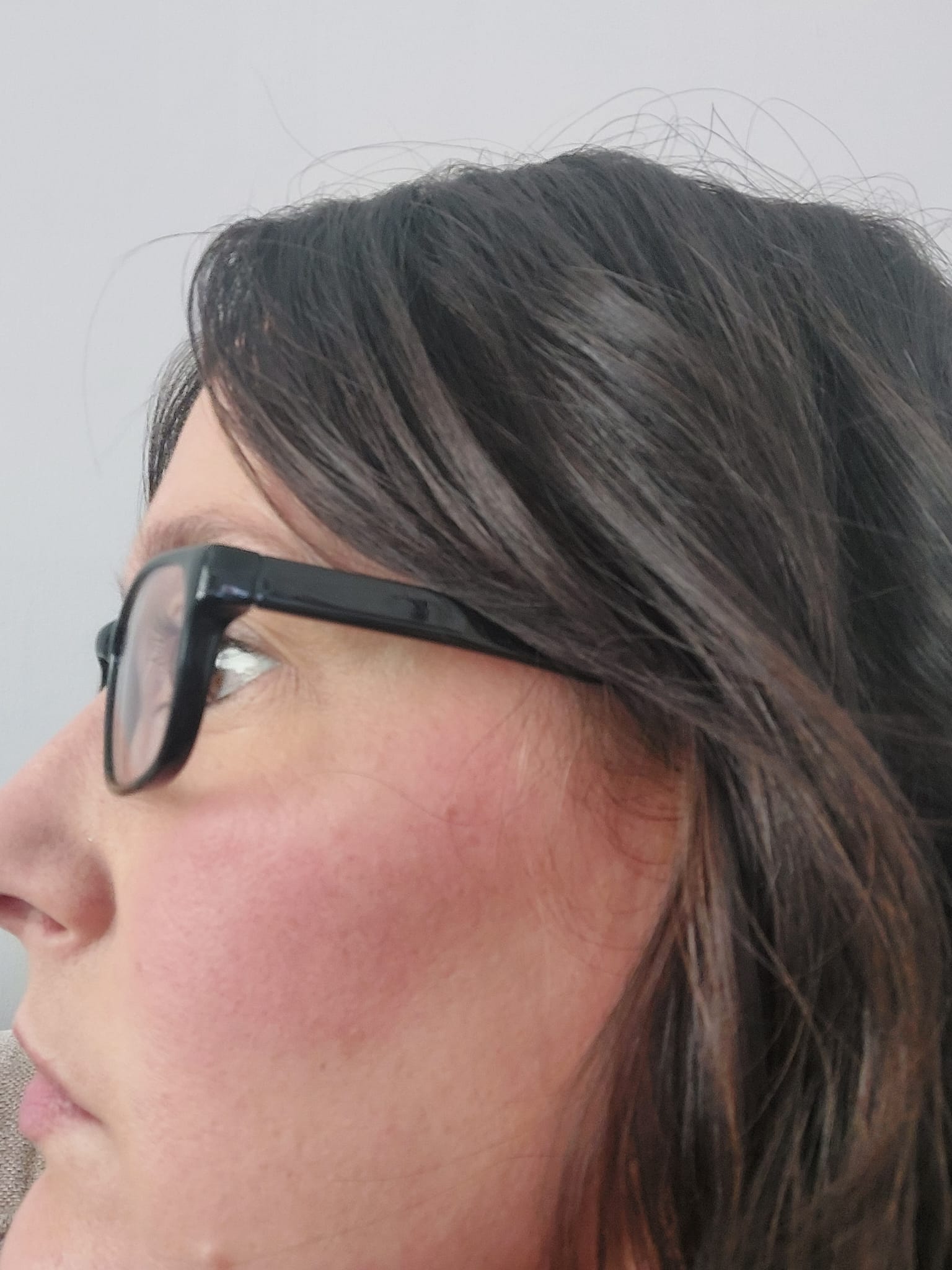
According to the NHS, hives (also called urticaria) is a raised, itchy rash that is usually caused by a reaction to things like food, pollen or insect bites.
Ms Pearson said she first remembers noticing the symptoms of cold urticaria at the age of 13.
“I remember going to school when it was cold and any skin that was showing, like my face, would go really red,” she said.
“I would get hives that look like nettle stings and going from the cold into heat would make my skin burn.
“People at school would say, ‘Ew, what’s wrong with your face?’
“I have to wait for my skin to settle down – which all depends on how long I’ve been exposed to the cold, so it could take half an hour.”
Ms Pearson said she would think to herself, ‘I’m having a reaction’, but said she never got checked or tested for her symptoms until later in life.
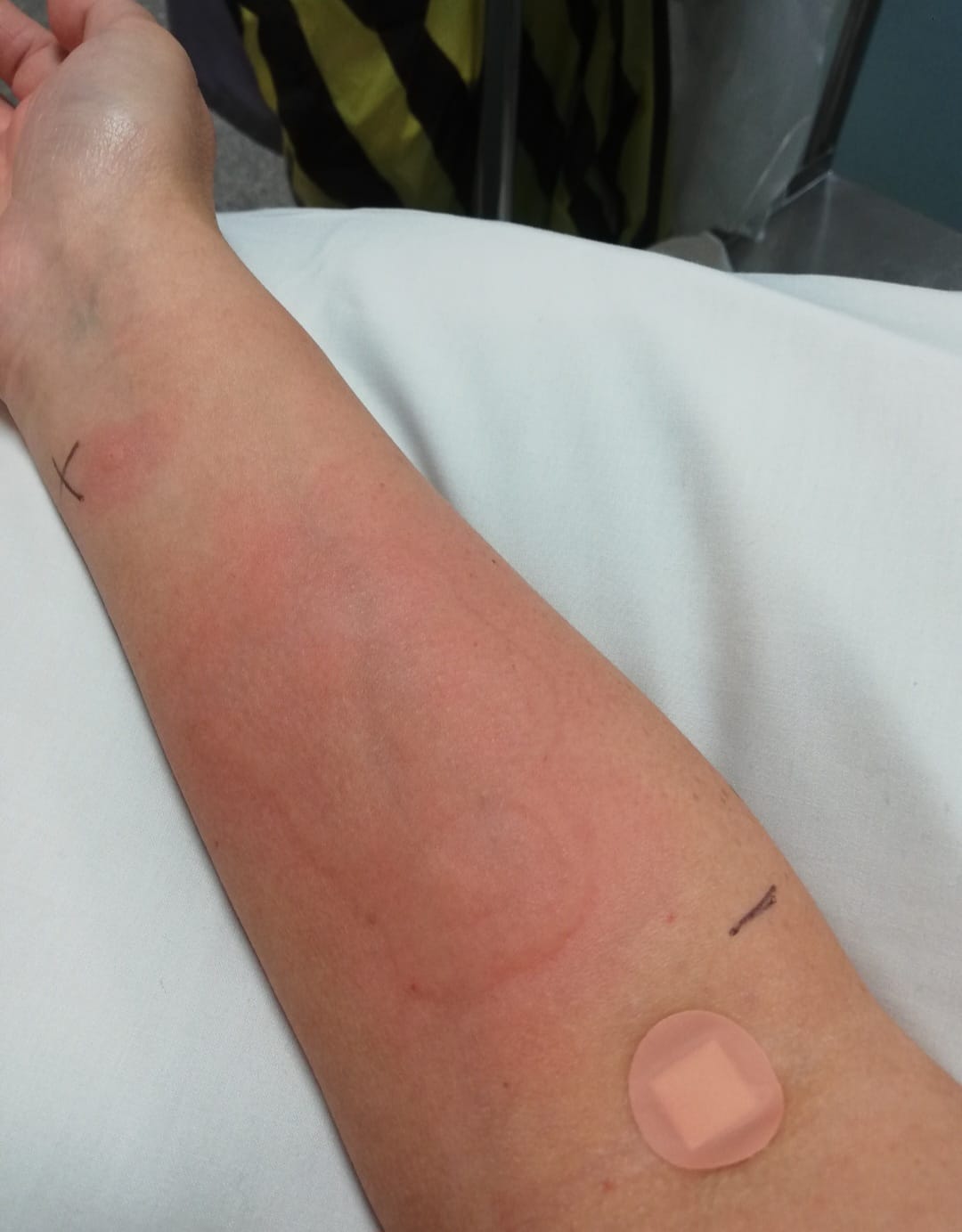
“I just always wrapped up for the winter,” she said.
Throughout her youth, she said her reactions “affected a lot of things”, especially while she was at university and going out with friends.
“People were going clubbing or going to the pub, and I was the one that was always wrapped up – or I’d ask if we could get a taxi because I didn’t want to walk in all red and swelling,” she said.
After grappling with her symptoms for decades, Ms Pearson said they reached a new peak in August 2019, when she and her family took a trip to Disneyland in America, where they swam with dolphins.
She recalled getting into the water, which was “really cold”, before she suffered with a reaction resembling anaphylaxis – a life-threatening allergic reaction that happens very quickly.
“I remember getting in the water which was only waist height, and I was saying to my husband, ‘oh it’s really cold’,” she recalled.
“All I kept thinking was, ‘I just need to do this, I just need to swim with the dolphin and then get out’.
“When I got back into the water, I told my husband I felt really faint.”
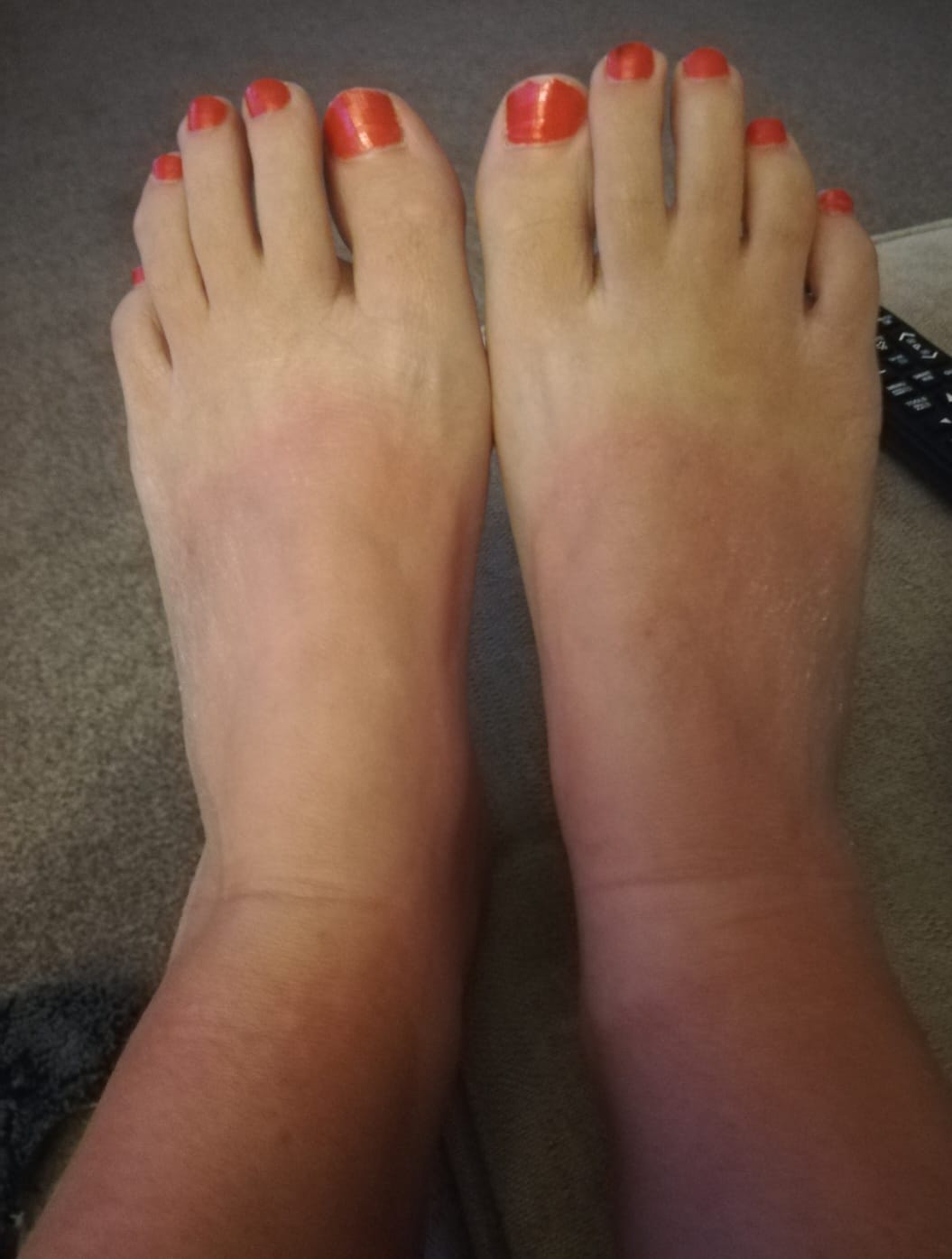
Ms Pearson said her husband took her out of the water where she “just went straight to the floor” on the sand.
She said she suspected she was going into anaphylactic shock at the time – she could not lift her chin and she “knew” her blood pressure was “really low”.
She also said another family member pointed out that her lips were blue.
After being wrapped in towels to get warm, she recalled feeling “really exhausted” when she came to.
The ordeal prompted her to visit her GP, where she was referred to an immunologist and allergy specialist at Sheffield Hospital.
She said to diagnose cold urticaria, an ice cube test is performed – where she said ice cubes were inserted into a fabric casing and placed on the inside of her forearm for five minutes to gauge the reaction.
“It was really cold and I could feel it itching and burning,” Jill recalled.
“I wanted them to see how bad my rection gets – it looked like I had skin graft on my forearm, it came up with a massive welt.
“They actually went to get a consultant to show them because it was so bad.”
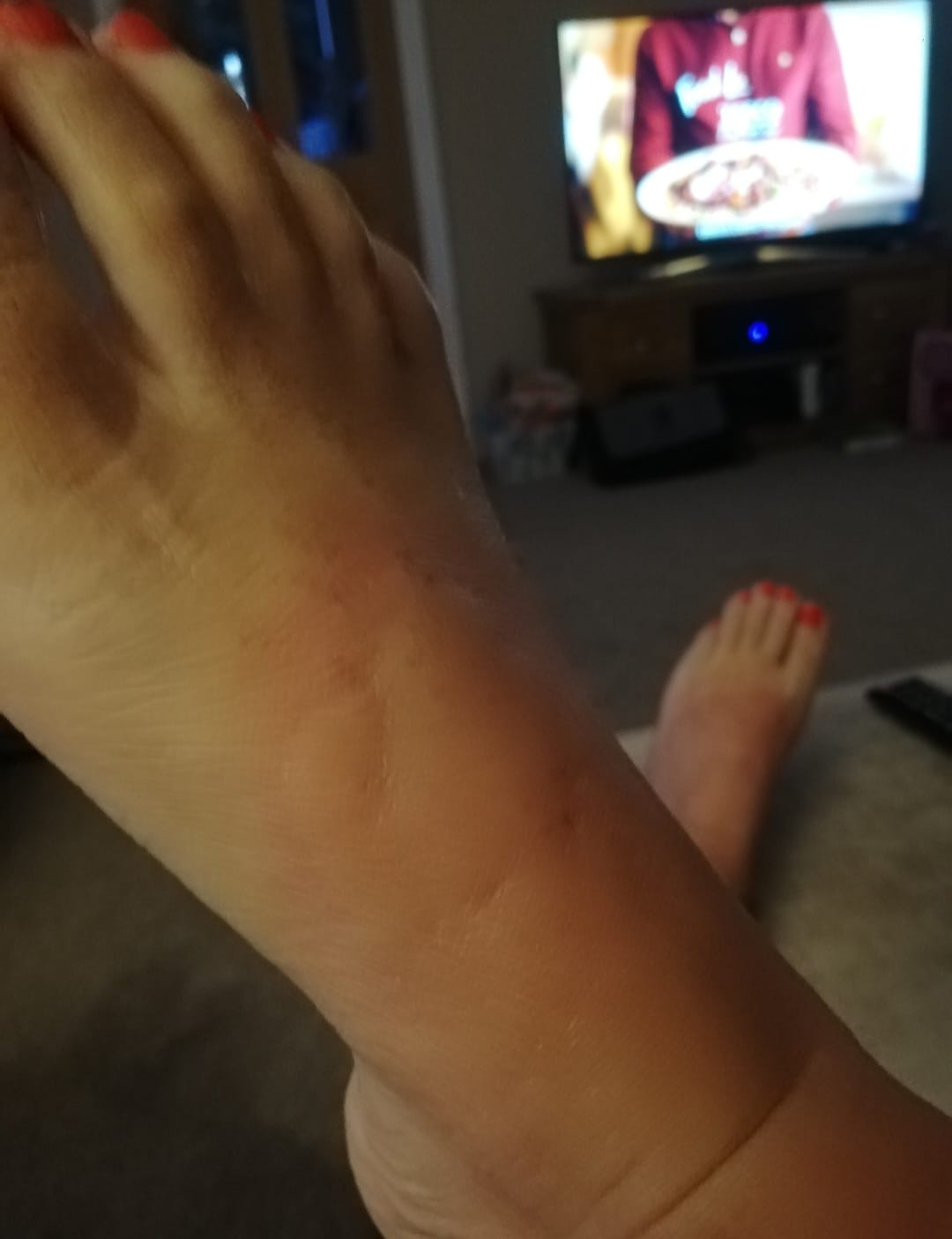
Ms Pearson said she was given an antihistamine – medicines often used to relieve symptoms of allergies – before she underwent several blood tests to try and establish the root cause of her reaction.
“They all came back fine, so they couldn’t really find a reason as to why I was having this reaction,” she said.
She was officially diagnosed with cold urticaria in August 2019.
She has since tried several antihistamines with the aim of preventing her reactions to the cold, but said “nothing works”.
She has now been advised to not go swimming, she carries two EpiPens at all times and she takes some medications to try and “dampen down” her symptoms.
She has also made a number of adaptations in her daily routine to avoid cold temperatures.
“Even down to things like brushing my teeth, I don’t use really cold water,” she said.
“When it’s really cold and I go out, usually it’s just my eyes that are showing.
“After I shower, I have to dry straight away – if I don’t dry fully, even the change in temperature makes my skin red, almost like I’ve been burnt.”
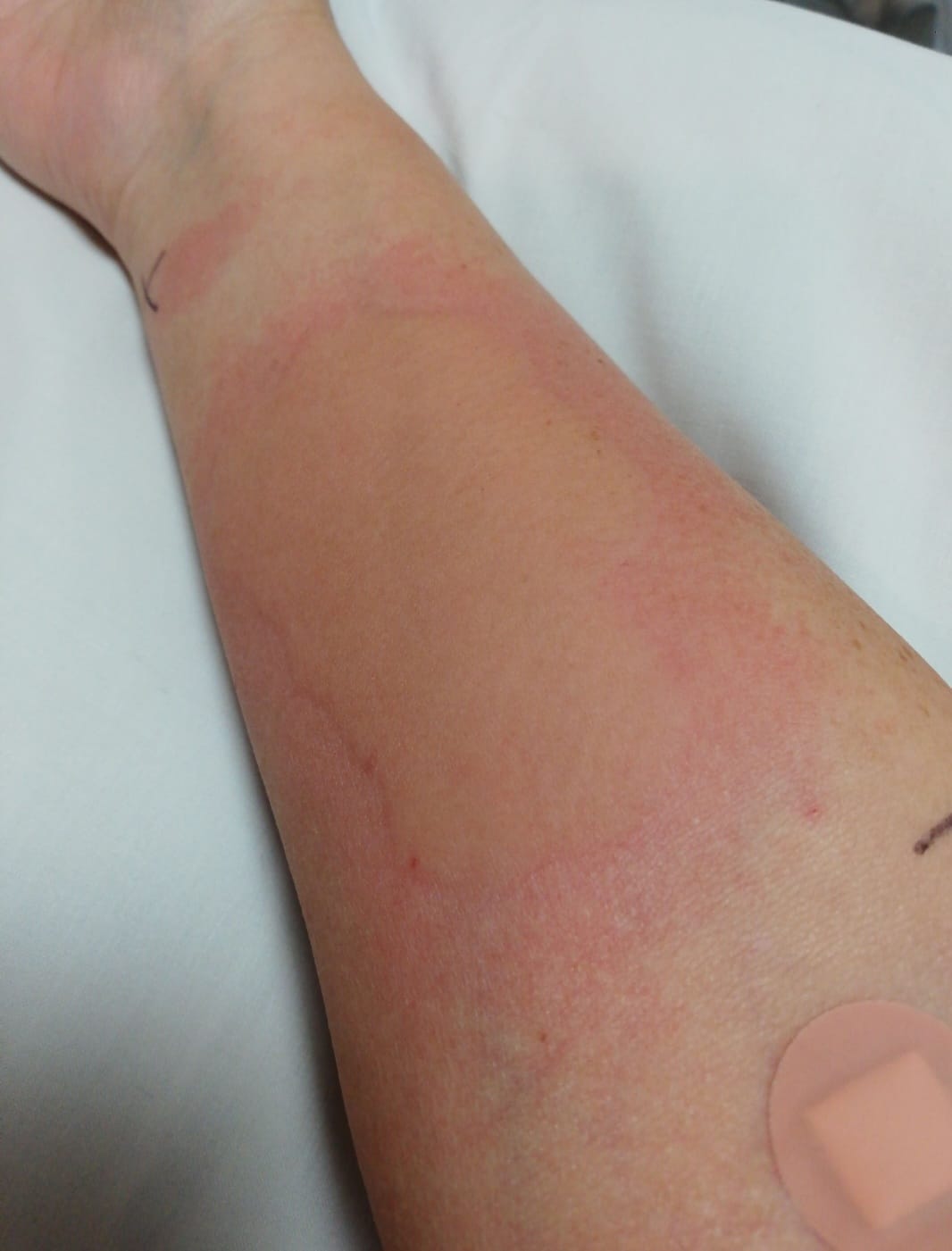
Ms Pearson also avoids ice cream or ice lollies because the roof of her mouth “swells” and “itches”, and she said she always keeps the heating on at home.
She even avoids certain supermarkets due to their temperatures, saying the frozen aisle is “a nightmare”.
Going abroad to a hotter climate provides Jill with a temporary respite from her reactions – although even air conditioning in restaurants or hotel rooms can be too much for her.
Ms Pearson has joined a Facebook group to connect with others who suffer with cold urticaria, and she advised those in her position to do the same.
“Reach out to other people that are going through it,” she said.
“They are the ones who can give you advice and support, and not laugh at the way you have to adapt your life.
“They really do understand, and they might be able to give you some suggestions on how to make things more liveable.”

